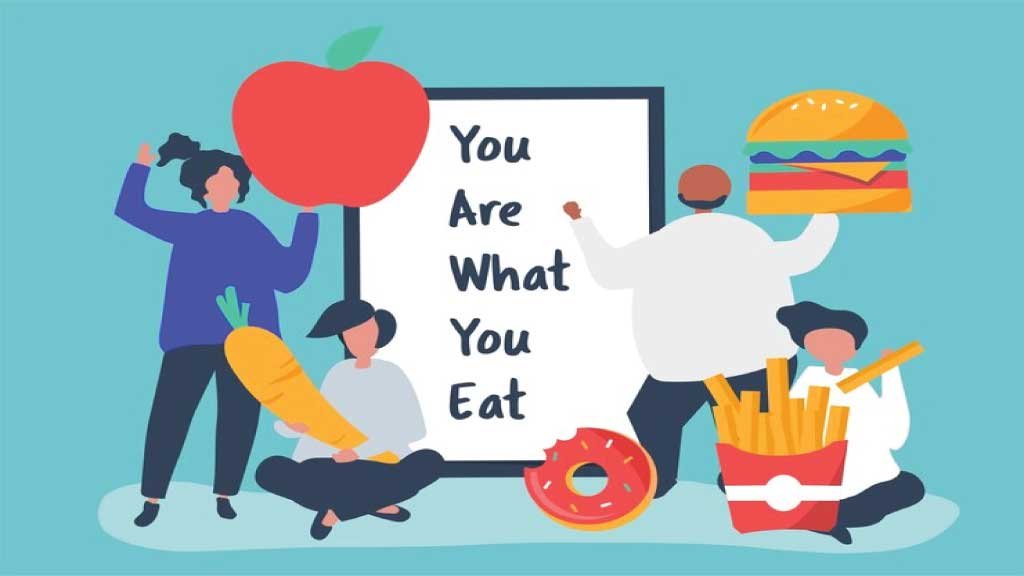Losing weight without exercise necessitates a dedicated emphasis on dietary modifications and lifestyle adjustments. Strategic changes in your eating habits play a pivotal role in this endeavor. Opt for nutrient dense foods, incorporating a variety of fruits, vegetables, lean proteins, and whole grains into your diet. Portion control is crucial to prevent overeating, fostering a mindful approach to meals. Hydration is equally essential; drinking an ample amount of water not only aids in digestion but also helps control hunger. Limiting the intake of processed and sugary foods is pivotal, as these often contribute to excessive calorie consumption.
Additionally, adopting mindful eating practices, such as savoring each bite and avoiding distractions, enhances awareness of satiety. Prioritize adequate sleep and stress management, as these factors significantly impact weight. Consulting with a healthcare professional or a registered dietitian ensures a safe and tailored approach, promoting sustainable weight loss through sensible lifestyle choices.
Table of Contents
ToggleCalorie Control:
Effective weight management often begins with calorie control. Paying meticulous attention to portion sizes is crucial as it helps regulate calorie intake and promotes a calorie deficit, a key factor in weight loss. Focus on consuming nutrient dense, whole foods that provide essential vitamins and minerals without unnecessary calories. Opting for lean proteins, colorful vegetables, whole grains, and fruits ensures a well balanced diet that supports overall health.
Nutrient dense foods not only contribute to weight loss but also offer sustained energy, helping you stay satiated and focused throughout the day. Avoiding highly processed and calorie dense options is essential in this approach. Be mindful of hidden calories in the sauces, dressings, and snacks. Tracking your daily caloric intake can also aid in creating awareness and making informed choices. Remember, achieving a calorie deficit through mindful eating is a fundamental aspect of any successful and sustainable weight loss journey.

Healthy Eating Habits:
Cultivating healthy eating habits is essential for overall well being and effective weight management. Prioritize a balanced and nutrient rich diet by incorporating ample fruits, vegetables, lean proteins, and whole grains into your meals. These foods provide essential vitamins, minerals, and fiber, promoting satiety and supporting your body’s nutritional needs.
Consciously limit the intake of processed foods, sugary snacks, and high calorie beverages, as they often contribute to excess calorie consumption and may lack essential nutrients. Opting for whole, unprocessed alternatives enhances the nutritional value of your diet and aids in weight control.
Mindful eating is a valuable practice to adopt, encouraging awareness and enjoyment of each bite. By savoring your food and paying attention to hunger and fullness cues, you can prevent overeating and build a positive relationship with eating. These habits not only contribute to weight management but also foster a sustainable approach to nutrition that promotes long term health and vitality.
Hydration:
Hydration plays a crucial role in maintaining overall health and supporting weight management. Drinking an ample amount of water throughout the day is essential for various bodily functions. Often, feelings of hunger can be misinterpreted signals of dehydration, highlighting the importance of staying well hydrated.
Water not only helps quench thirst but also aids digestion by facilitating the breakdown of food and the absorption of nutrients. Furthermore, proper hydration supports metabolic processes, contributing to the efficient burning of calories and potentially aiding in weight loss.
In addition to its role in metabolism, water promotes a sense of fullness, which can be particularly beneficial when trying to control calorie intake. Choosing water over sugary beverages also reduces overall calorie consumption and supports a healthy lifestyle. Developing a habit of regular hydration is a simple yet impactful way to enhance overall well being and contribute to weight management goals.

Balanced Diet:
Maintaining a balanced diet is essential for optimal health and effective weight management. Ensure that your daily meals incorporate a mix of macronutrients proteins, fats, and carbohydrates. Each macronutrient plays a unique role in supporting bodily functions, and a well rounded diet ensures that your body receives a comprehensive range of essential nutrients.
Proteins, essential for muscle repair and maintenance, can help you feel full and satisfied. Healthy fats, found in sources like avocados and nuts, contribute to cognitive function and support hormone production. Carbohydrates provide the body with energy for the daily activities and exercise.
A balanced diet not only addresses nutritional needs but also plays a crucial role in controlling cravings. When your body receives a variety of nutrients, it is less likely to experience intense hunger or cravings for specific food types. By prioritizing balance in your meals, you create a foundation for sustained energy, improved overall health, and a more effective approach to weight management.
Meal Timing:
Strategic meal timing is a valuable component of a healthy eating routine, contributing to both energy levels and weight management. Rather than consuming large meals infrequently, consider spreading your meals throughout the day to maintain a steady supply of nutrients and sustain energy levels.
Eating at regular intervals helps prevent excessive hunger, a common trigger for overeating and making unhealthy food choices. By keeping your body fueled consistently, you can optimize metabolism and avoid the energy crashes associated with irregular eating patterns.
Dividing your daily caloric intake into several smaller meals can also enhance nutrient absorption, supporting overall nutritional well being. This approach can promote better digestion and assimilation of essential vitamins and minerals.
In addition to the physical benefits, spreading meals throughout the day fosters a more balanced relationship with food. It allows for a mindful and intentional approach to eating, reducing the likelihood of impulsive food choices driven by extreme hunger. Ultimately, thoughtful meal timing contributes to sustained energy, improved metabolism, and effective weight management.

Adequate Sleep:
Prioritizing adequate sleep is a fundamental aspect of maintaining overall health, including effective weight management. The link between sleep and weight is intricate, as lack of sleep can disrupt the balance of hormones related to hunger and satiety.
Insufficient sleep can lead to an increase in ghrelin, the hormone that stimulates appetite, and a decrease in leptin, the hormone that signals fullness. This hormonal imbalance may result in heightened feelings of hunger and a propensity to overeat, particularly with a preference for high calorie, sugary foods.
To support weight management and overall well being, aim for 7-9 hours of quality sleep each night. Establishing a consistent sleep routine and creating a comfortable sleep environment are essential steps in ensuring restorative and uninterrupted sleep.
By prioritizing sufficient sleep, you contribute to hormonal equilibrium, improved mood, and enhanced cognitive function, all of which play vital roles in making healthier food choices and maintaining a balanced weight. Quality sleep is a cornerstone of a holistic approach to a healthy lifestyle.
Sustainable Weight Loss Without Exercise
Embarking on a weight loss journey without exercise necessitates a conscientious and sustainable approach. It’s imperative to prioritize long term health over quick fixes and consider seeking guidance from healthcare professionals or registered dietitians for personalized advice. Rapid weight loss methods, often tempting for their immediacy, can have adverse effects on health.
A balanced and sustainable approach involves mindful dietary choices, portion control, and the incorporation of nutrient dense foods. Consulting with healthcare professionals ensures that weight loss strategies align with individual health needs, preventing potential risks associated with extreme practices.
Healthcare professionals can assess underlying health conditions, metabolic factors, and nutritional requirements, tailoring advice to foster safe and effective weight management. By adopting a sustainable perspective and seeking professional guidance, individuals can develop habits that promote not only weight loss but overall well being, laying the foundation for a healthier and more fulfilling lifestyle.
Conclusion:
In conclusion, the pursuit of weight loss demands a balanced and sustainable approach. While quick fix diets and extreme fasting may offer rapid results, they often come at the cost of long-term health and are challenging to maintain. Opting for a balanced, nutrient dense diet, controlling portion sizes, and incorporating regular exercise are foundational to effective and sustainable weight management. Strict diets that eliminate entire food groups can lead to nutritional imbalances, while adopting healthier habits supports overall well being. It is crucial to prioritize the journey to a healthier weight over the desire for immediate results.
For personalized advice and safety, consulting with healthcare professionals or registered dietitians is recommended. Remember, cultivating a positive relationship with food and embracing lasting lifestyle changes are key to achieving and maintaining a healthy weight in the long run.
FAQs:
What happens if you do not eat in 24 hours?
Going without food for 24 hours can trigger several physiological responses. Initially, the body uses stored glycogen for energy, but after approximately 12-24 hours, it begins to rely on fat stores for fuel. While intermittent fasting or occasional short-term fasting may have benefits for some, extended periods without food can lead to nutrient deficiencies, muscle loss, fatigue, and a slowed metabolism. It’s crucial to approach fasting with caution and consider individual health conditions.
What diet is quickest for weight loss?
Quick-fix diets may promise rapid results, but they often lack sustainability and can be detrimental to health. Instead of opting for extreme measures, focus on a balanced, calorie controlled diet that includes a variety of nutrient dense foods. Sustainable weight loss involves creating a calorie deficit through healthy eating habits and regular exercise.
What is a strict diet to lose weight?
Strict diets vary, but they often involve severe calorie restriction or eliminating certain food groups. While they may lead to initial weight loss, they are challenging to maintain and can result in nutrient deficiencies. A more effective and sustainable approach is to adopt a balanced diet that includes a mix of macronutrients and micronutrients.
What is the best diet to lose weight fast?
The best diet for fast weight loss is one that prioritizes a balanced and sustainable approach. Incorporate whole foods, control portion sizes, and engage in regular exercise. Diets that focus on long-term habits rather than quick fixes tend to yield more lasting results. Consulting with a healthcare professional or registered dietitian can provide personalized guidance for effective and safe weight loss.
Images ‘Designed by Freepik‘

